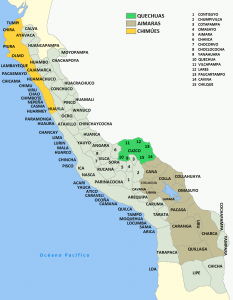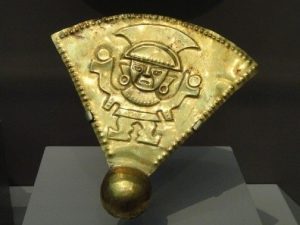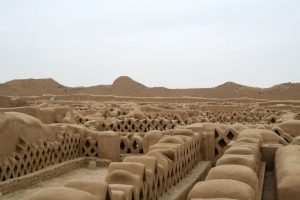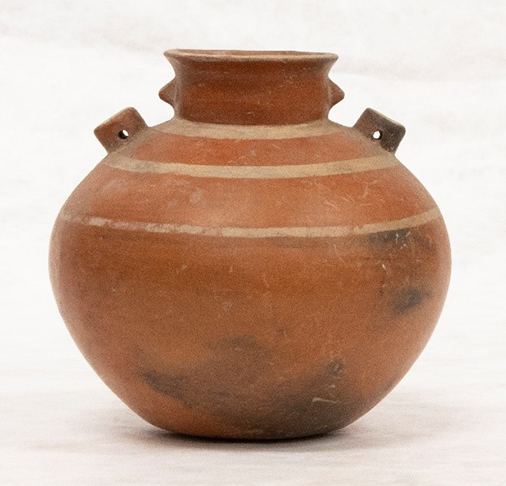Banded Hanging Pot
Chimú
1000 – 1400
5” H x 5” W x 5” D
M83.1.1
Gift of Jack Noel Jacobsen Jr.
Seton Hall University Museum of Anthropology and Archeology
This pot was made in the Chimor Empire, which was one of the largest and most prosperous civilizations in South America between the 10th and 15th centuries, before being overtaken by the Inca around 1470. The Chimú resided in fertile river valleys located on a strip of desert on the northern

https://commons.wikimedia.org/wiki/File:Tahuantinsuyo-PeruBolivia.png
coast of present-day Peru. The region was favorable for crop irrigation and plentiful supplies of fish, both important drivers for their economy. The Chimú, were comprised of many different ethnic groups owing to ongoing expansion into new regions. Most citizens were artisans who used extensive trade networks to contribute to this flourishing culture. This pot is an example of the empire’s distinctive monochromatic pottery which was utilitarian in nature, but the Chimú were also known for more elaborately decorated crafts made of precious metals such as the rattle pictured below.[1]

The Chimú lived in urban settings and left behind many formidable examples of architecture. The former capital, Chan-Chan, not far from present-day Trujillo, contains 14 square miles of their former cityscape where streets, imposing walls, reservoirs and temples still stand. The size of the ruins suggests the city was populated by thousands.[2]

The Walsh Gallery has a considerable collection of fine art, artifacts and archeological specimens for use by faculty, students and researchers. For access to this or other objects in our collections, contact us at 973-275-2033 or fill out a research request form to make a research appointment.
[1] https://www.ancient.eu/Chimu_Civilization/, accessed 12/18/2020.
[2] https://www.britannica.com/topic/Chimu , accessed 12/18/2020.
